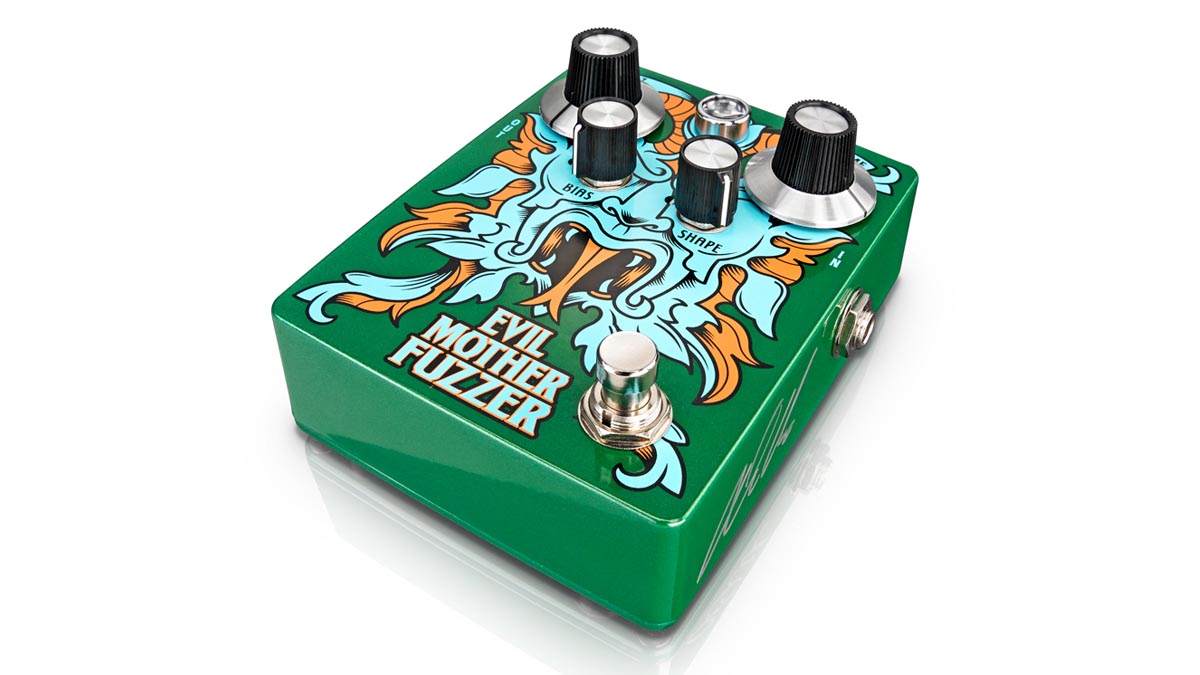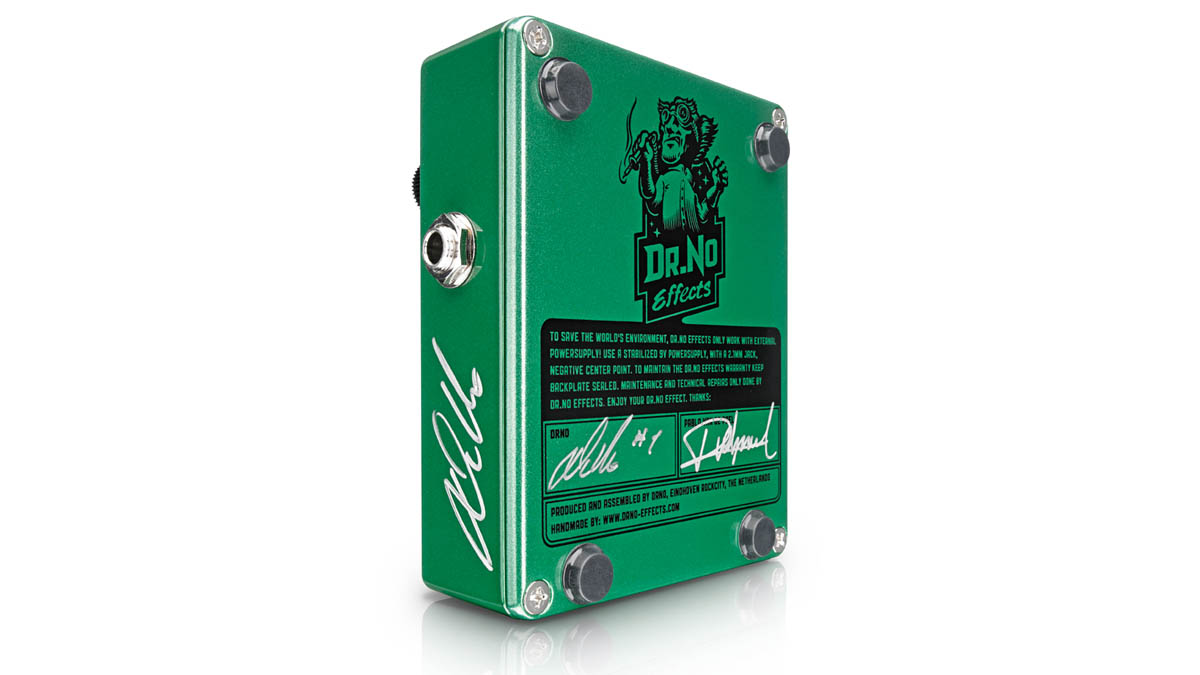Dr. No introduces Evil Motherfuzzer guitar effects pedal
Limited-edition fuzz utilises original germanium transistors

Want all the hottest music and gear news, reviews, deals, features and more, direct to your inbox? Sign up here.
You are now subscribed
Your newsletter sign-up was successful
Fine purveyor of analogue effects Dr. No has unveiled another addition to its eye-popping catalogue: the Evil Motherfuzzer.
As you might expect, the Evil Motherfuzzer is an analogue fuzz, and it's been designed in collaboration with Pablo van de Poel, who was recently voted #1 guitar player in the Netherlands by our exotic European sister publication Gitarist.
The pedal is built with ultra-rare original germanium transistors - in fact, they're so hard to come across, only 175 Evil Motherfuzzers can be built, and all will be signed by the good Dr and van de Poel.

Volume, fuzz, shape and bias knobs promise complete control over fuzz gain, midrange and bass, while Dr. No claims to have cured any problems traditionally experienced from germanium fuzzes in the signal chain - how, we're not quite sure, but we trust him; he's a doctor.
The Evil Motherfuzzer is available now for $278/€247 from Dr. No Effects.
Want all the hottest music and gear news, reviews, deals, features and more, direct to your inbox? Sign up here.
Mike has been Editor-in-Chief of GuitarWorld.com since 2019, and an offset fiend and recovering pedal addict for far longer. He has a master's degree in journalism from Cardiff University, and 15 years' experience writing and editing for guitar publications including MusicRadar, Total Guitar and Guitarist, as well as 20 years of recording and live experience in original and function bands. During his career, he has interviewed the likes of John Frusciante, Chris Cornell, Tom Morello, Matt Bellamy, Kirk Hammett, Jerry Cantrell, Joe Satriani, Tom DeLonge, Radiohead's Ed O'Brien, Polyphia, Tosin Abasi, Yvette Young and many more. His writing also appears in the The Cambridge Companion to the Electric Guitar. In his free time, you'll find him making progressive instrumental rock as Maebe.
